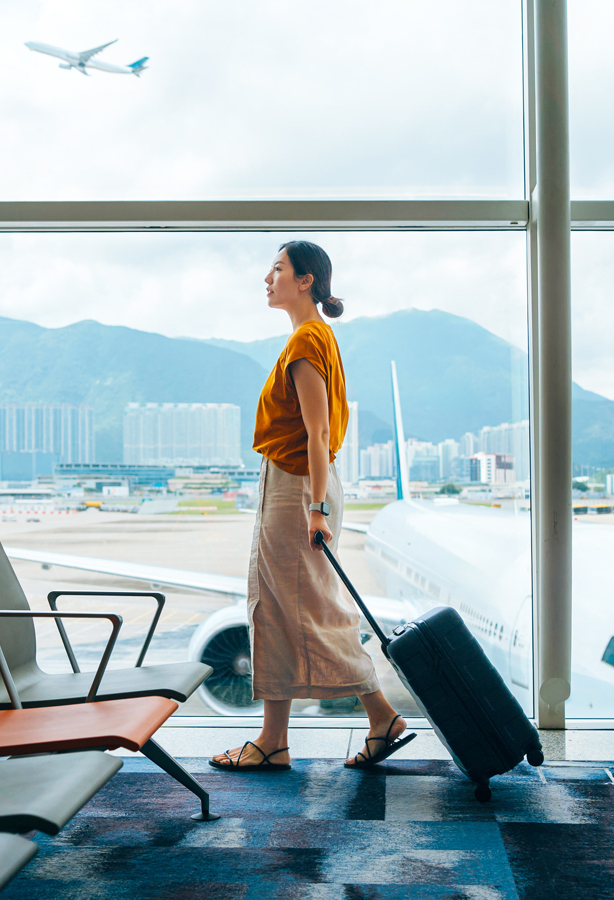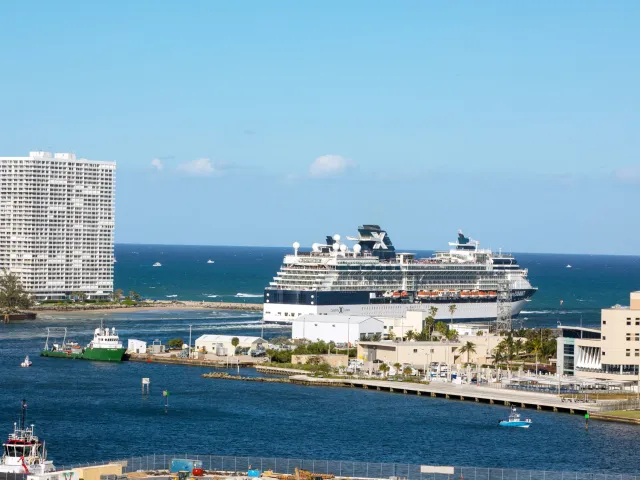For all of the fascination and fun travel provides, flying can certainly have its stressful moments. Delays, long security lines, or pesky turbulence can all lead to a less-than-ideal air travel experience. Another, albeit less common, hurdle is getting bumped from a flight, which happens when an airline overbooks a flight and has more passengers than seats. According to the Department of Transportation, in 2022 the number of passengers bumped on major U.S. airlines (either voluntarily or involuntarily) rose to 317,707, up from 182,719 the previous year. While the data suggests that this situation is certainly possible on your travels, it’s still rare — and there’s no need to panic. Here’s everything you need to know about overbooked flights and what to do if one happens to you.
What Is Overbooking?
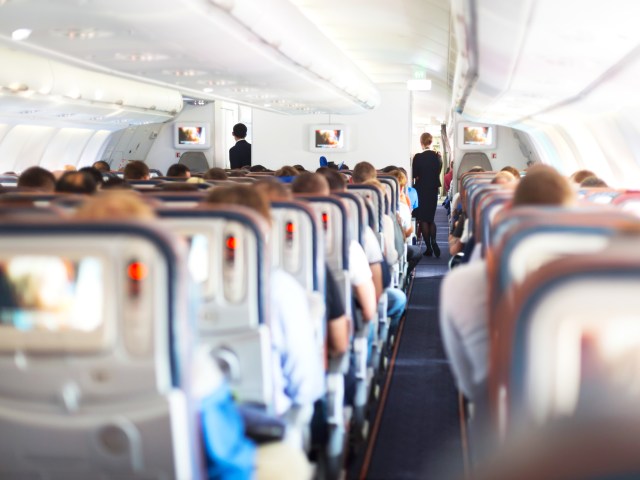
Overbooking — officially known as “denied boarding” — is a strategy used by airlines to make up for anticipated no-show passengers on a flight. The airlines will typically sell more tickets than the actual number of seats available on the plane, taking into account historical data and statistical probabilities of passengers missing their flights. If an airline is in the practice of overbooking, this data can often reliably predict the correct number of seats to oversell. However, on the off-chance that a flight has been oversold but all ticketed passengers show up, airlines typically first ask for volunteers to give up their seats in exchange for compensation, such as travel vouchers or hotel accommodations. In some cases, if there are not enough volunteers, airlines may involuntarily deny boarding to — or “bump” — some passengers. This practice is not illegal, but it can certainly be inconvenient.
Why Do Airlines Overbook?
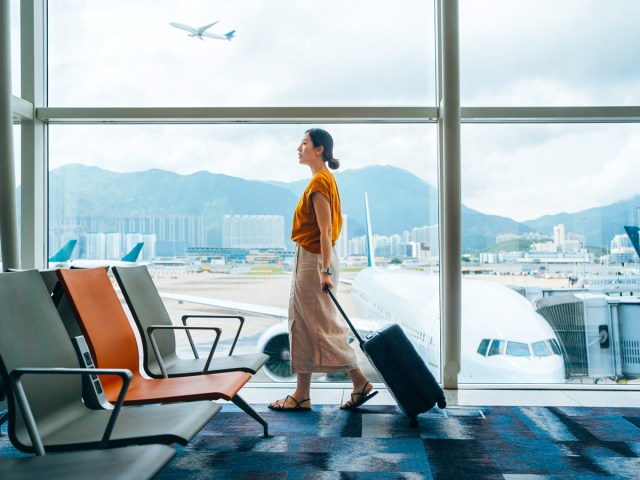
The short answer: to protect their revenue. By analyzing data, airlines can predict what seats will end up empty on a flight, whether due to missed connections or passengers canceling at the last minute. An empty seat due to a no-show isn’t good for the bottom line, so airlines take the opportunity to make sure revenue potential is maximized. This helps the business make money and offsets costs by keeping all those airplane seats filled. The strategy seems to be working, as flights are fuller than ever — but it also leaves less room for error if things go awry.
Which Airlines Overbook the Most?
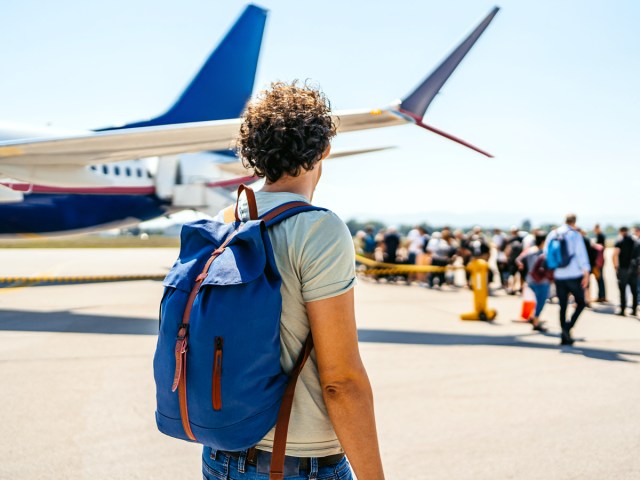
Overbooking is a common industry practice, but some airlines do it more than others. According to DOT data, low-cost carrier Frontier Airlines involuntarily bumped the most passengers in 2022, denying boarding to approximately four passengers per every 10,000 passengers. American Airlines had the second-highest occurrence of bumping travelers from flights, followed by Spirit Airlines. The airlines who bumped the fewest involuntary passengers include Delta Air Lines, Allegiant Air, and Hawaiian Airlines.
What to Do if You Get Bumped From an Overbooked Flight
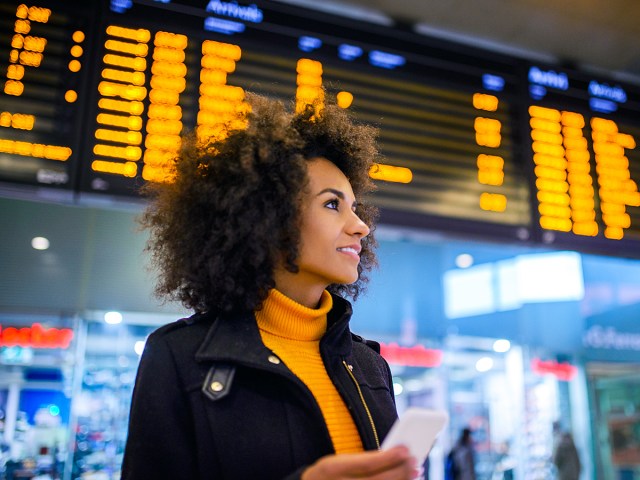
Airlines must follow the DOT’s highly specific rules for involuntarily bumping passengers. As of 2024, the compensation is determined by ticket price, the duration of delays resulting from denied boarding, and whether their flight is a domestic or international flight from the U.S. For domestic flights, airlines are obligated to compensate passengers 200% of their one-way ticket value if their arrival is delayed one to two hours beyond the original schedule. (Airlines are, however, allowed to cap this compensation at $775.) If the delay extends beyond two hours, the compensation increases to 400% of the one-way ticket price; airlines can cap that compensation at $1,550.
For international flights departing the U.S., the compensation window for 200% of a one-way fare extends up to four hours of delay. For delays over four hours, the compensation escalates to 400%. (The same price caps apply.) Airlines must make sure those who are involuntarily bumped receive their compensation on the same day while at the airport.
And remember, these are the minimum required monetary compensations — there is no legal limit to what you can negotiate from the airline. After a 2017 viral incident in which a passenger was forcibly dragged off a plane, airlines are increasingly willing to shell out thousands of dollars in compensation to avoid bad publicity. So, if your travel plans are flexible and you’re interested in cashing in to switch your flight, don’t settle on the airline’s starting offer.
How to Avoid Getting Bumped
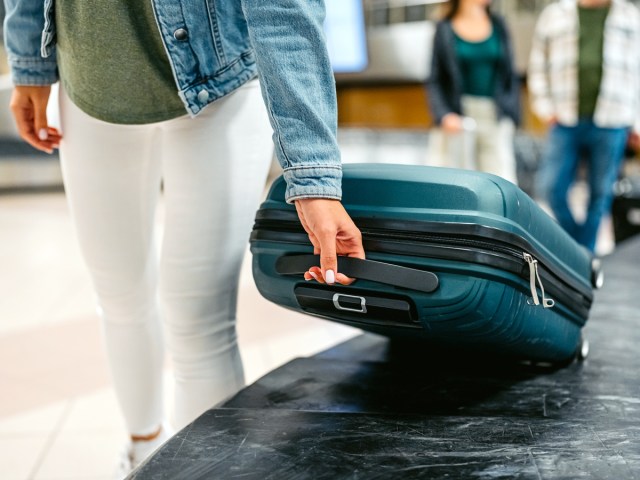
While it’s more common for passengers to volunteer to give up their seat than to be involuntarily bumped, airlines can unfortunately deny boarding to passengers as needed. The process is typically random, but travel experts suggest that passengers booked in a higher fare class or those with frequent flyer status are not likely to be the first people selected. For the average economy passenger, it’s recommended that you select your seat in advance, check in to your flight as early as possible, and, if checking luggage, check it and proceed to your gate with plenty of time to spare.
More from our network
Daily Passport is part of Optimism, which publishes content that uplifts, informs, and inspires.






